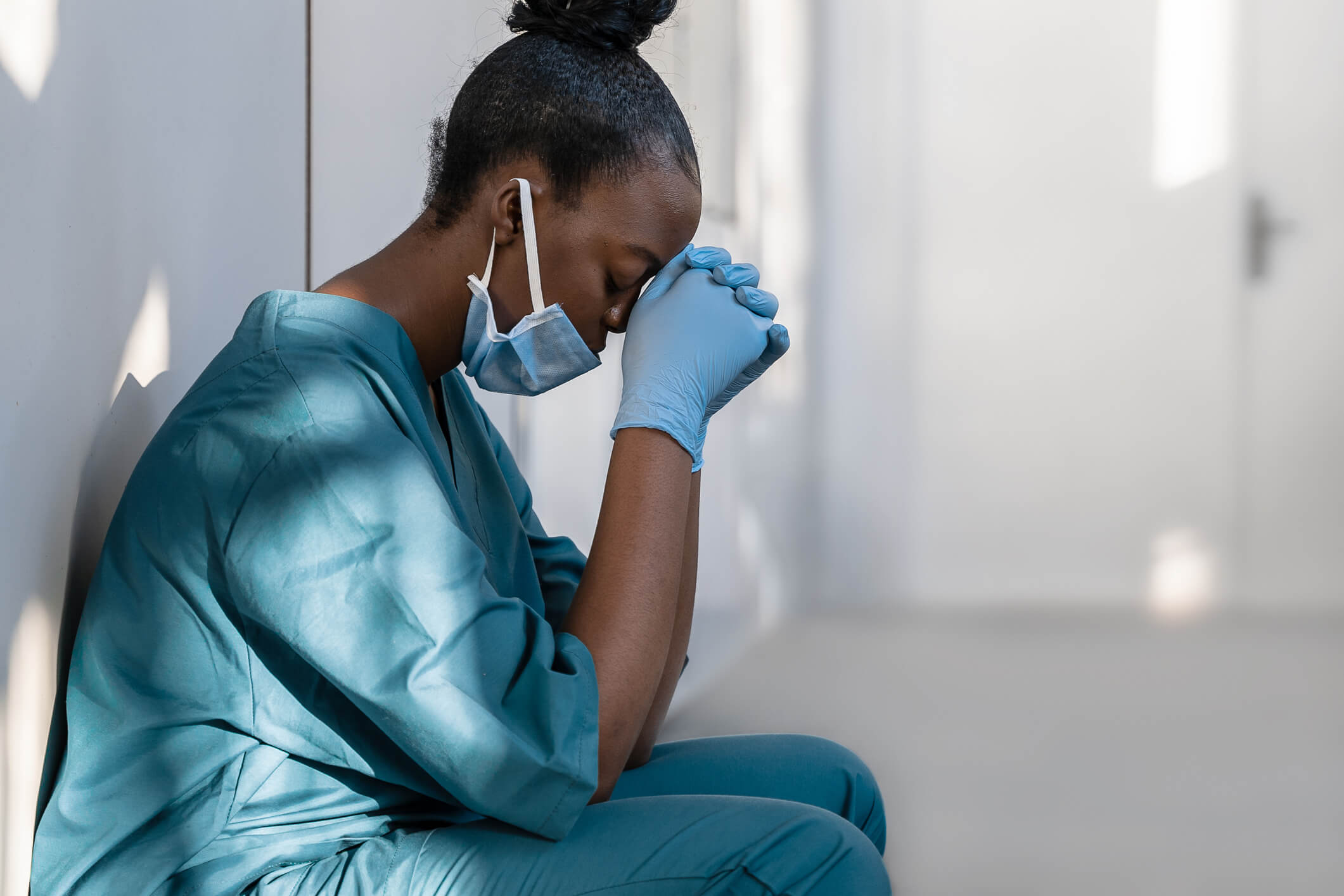AU grad advocates for more visibility of Black nursing students
Experiences of Black nursing students underrepresented in literature
Research on the experiences of Black nursing students is few and far between in Canada, according to Athabasca University (AU) graduate Kimberley Jones.
To help change that, Jones (Master of Nursing ’22) is using her voice to advocate for more visibility of Black nursing students.
“I wanted to research education and Black students in Canada. But when I looked up the literature, there was almost none on Black nursing students—there was almost nothing on Black students at all,” said Jones.
First-hand experiences
After feeling hyper-visible, othered, and stigmatized during her undergraduate studies in Alberta, Jones wanted to ensure a different experience when she began her master’s program with AU in 2017.
“I felt like I was allowed to attend school, but I wasn’t supposed to be there,” she said of her previous undergraduate experience.
Because of that negative experience, when she set up her online profile for AU courses, she intentionally omitted a photo of herself.
“I felt like I was allowed to attend school, but I wasn’t supposed to be there”
– Kimberley Jones, Master of Nursing ’22 graduate
“I wanted to exist as a person rather than being a Black person in an academic space. If I earn my mark, that’s my mark. I just let people assume my race,” she said.
Jones explained that she put so much pressure on herself to perform well in school and show that she didn’t conform to stereotypes.
“I wanted to prove that I was smart, that I was capable, that I earned my spot here. I don’t think that pressure exists for everyone in the same way. Other people could just show up and do what they wanted. I couldn’t.”
Finding literature on the experiences of other Black nursing students from other countries helped make her feel like she was not alone. This is why she was so astonished when she found very little Canadian examples.
Jones said studying at AU was much more positive than her undergrad experience. After the COVID-19 pandemic forced her to pivot her research plans, the only major challenge she faced was getting information from organizations that didn’t want to participate, making it hard to get Canadian data.
“I wanted to prove that I was smart, that I was capable, that I earned my spot here. I don't think that pressure exists for everyone in the same way. Other people could just show up and do what they wanted. I couldn’t.”
– Kimberley Jones
Changing the narrative
In order to do better and make change, it’s crucial to understand your own area of privilege and influence, Jones explained.
Changing the narrative, she added, requires educating yourself about what is happening to Black people in Canada and the United States. That’s the first step.
The second is to be aware that everyone has different perspectives. “Use the voice you have to advocate and create change where you are.”
Jones added the most important factor in change for someone who is not a visible minority is to be open to having your mind changed—to have those important conversations.

Looking forward
Jones explained that her time at AU has already opened many doors for her by being able to connect with faculty and nurses from across the country.
Post-graduation, she hopes her degree will allow her to continue her research. She also hopes to continue to advocate for Black nursing students and get more involved in increasing the research and literature about their experiences.
“It’ll help me get my foot in the door and have more conversations and get into the academic space.”
“My future is … to take opportunities as they come, use my voice however small it is to better others around me, and do what I’m passionate about,” she said.
Learn more about Athabasca University’s Master of Nursing-Generalist degree.